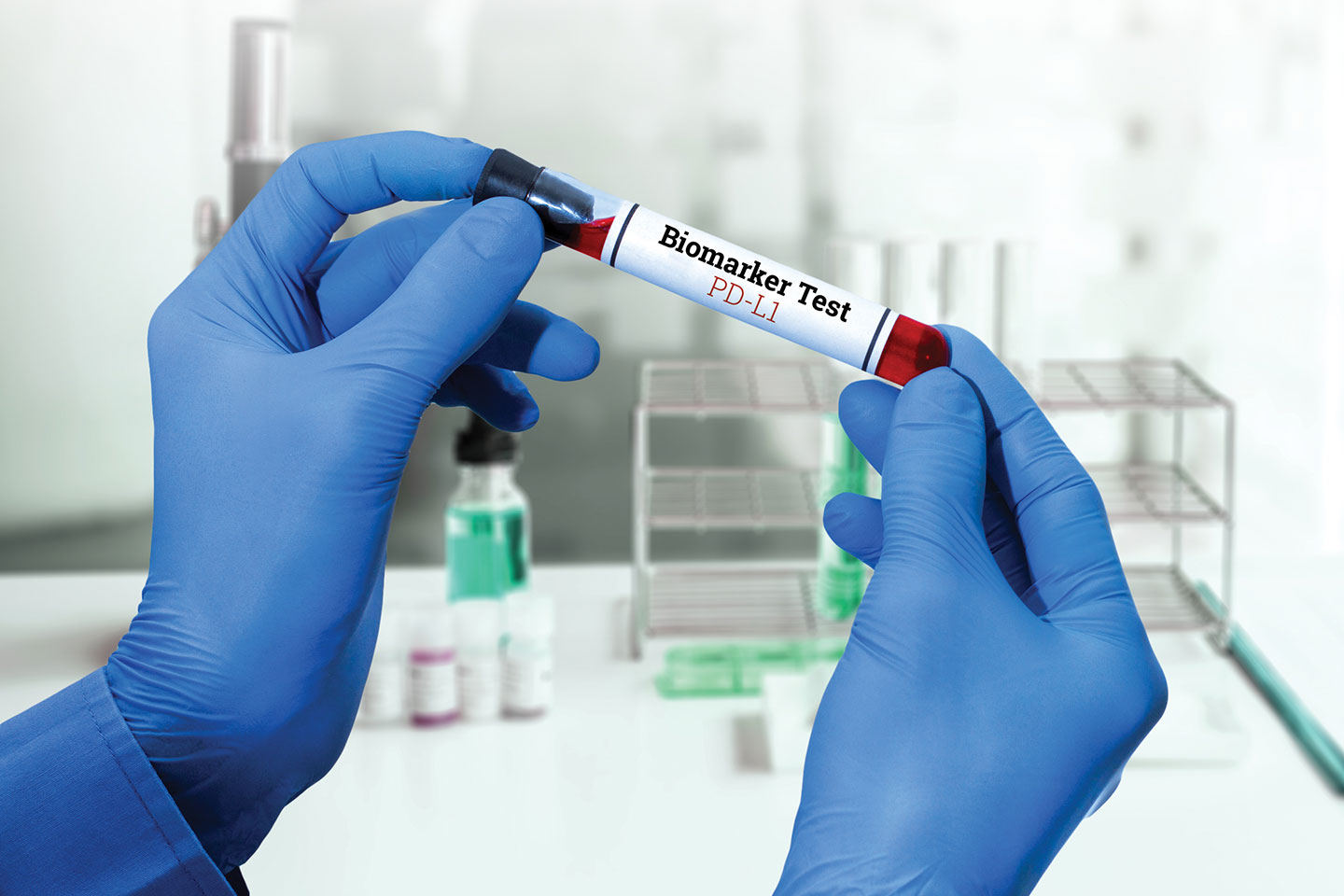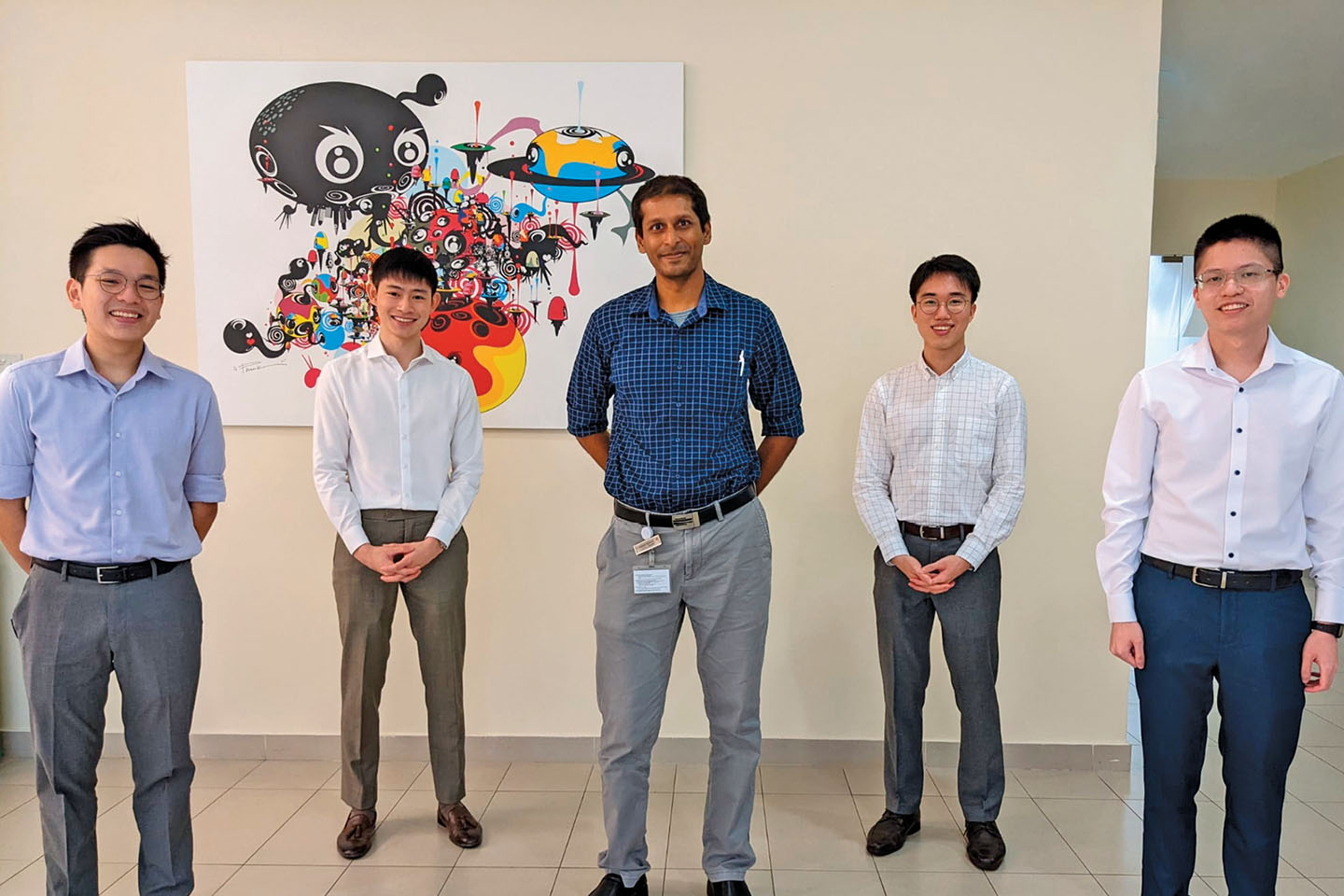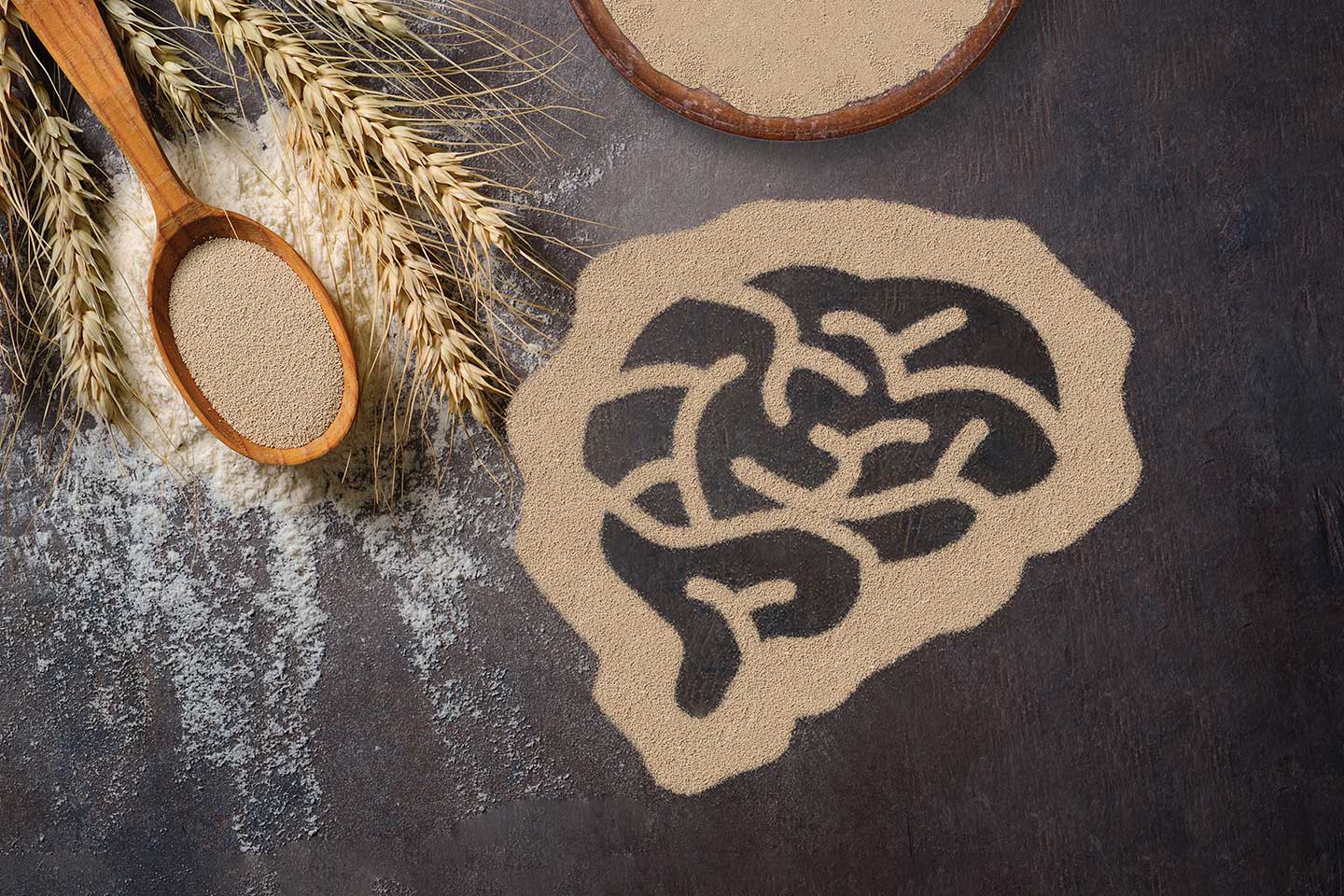
Issue 42 / May 2022
SCIENCE OF LIFE
Immunotherapy Plus Chemotherapy Not Viable for Some Stomach Cancer Patients

NUS Yong Loo Lin School of Medicine students and researchers develop novel algorithm to assess immunotherapy benefit in stomach cancer patients.
An algorithm developed by a team of medical students and researchers at NUS Medicine has identified a group of stomach cancer patients who may not benefit from undergoing joint immunotherapy-chemotherapy treatment.
They reported their finding in the study that was published in the Journal of Clinical Oncology, Volume 40, Issue 4. The researchers—fifth-year medical students Joseph Zhao, Teo Chong Boon, Benjamin Tan and third-year medical student Dominic Yap, led by Assistant Professor Raghav Sundar, Consultant, Department of Haematology-Oncology at the National University Cancer Institute, Singapore and the Department of Medicine at NUS Medicine, developed KMSubtraction, an algorithm to retrieve unreported subgroup survival data of patients who derived no benefit from adding immunotherapy to their cancer treatment options.
This means that patients, for whom the new treatment does not work, can potentially be spared unnecessary treatment, side effects as well as high treatment costs. Immunotherapy is a new class of drugs that have shown significant benefit in some cancer types. It redirects the body’s own immune system to target cancer cells in the body, harnessing the body’s innate ability to distinguish between cancer and healthy cells.
The novel algorithm identifies a group of stomach cancer patients who can potentially be spared unnecessary treatment, side effects as well as high treatment costs.
The impetus for this algorithm came about when a recently-conducted Phase III randomised controlled trial—CheckMate‑649—demonstrated that adding immunotherapy to conventional chemotherapy provides patients with advanced gastroesophageal cancer a significant chance of survival. A protein biomarker, known as PD-L1, has been hypothesised to be an indicator that can identify patients who may respond well to immunotherapy, along with conventional chemotherapy. This protein biomarker is commonly found on the tumour cells and the immune cells around the tumour. Patients with higher indicators of PD-L1 have been observed to derive more benefits from immunotherapy.
The authors of the CheckMate‑649 clinical trial reported that patients with the biomarker scores of more than 1 or 5 showed a high survival rate when treated with a combination of immunotherapy and chemotherapy. This manner of reporting meant that clinicians were unable to tell if patients with the biomarker score between 1 to 4 would truly benefit from immunotherapy-chemotherapy treatment. Based on the trial results from CheckMate‑649, the Food and Drug Administration in the United States has given approval to use the immunotherapy drug nivolumab for all gastric cancer patients, while European approval has only been extended to a specific subgroup of patients, with PD-L1 score of 5 or more.
KMSubtraction effectively streamlines the process of having to reach out to senior authors of major studies to request for new analysis to be performed. To demonstrate the robustness of the new algorithm and explore its limits of error, the algorithm was validated with over 500,000 simulations. The implementation of KMSubtraction in these trials resulted in new findings confirming that more than 20% of the patient population will not benefit from the addition of immunotherapy into their chemotherapy regimen. Instead, these patients could possibly be enrolled into clinical trials with newer agents, and spared the side effects and high costs of immunotherapy drugs.

From left: Dominic Yap, Joseph Zhao, Asst Prof Raghav Sundar, Benjamin Tan and Teo Chong Boon. (Photo courtesy of Asst Prof Raghav Sundar)
The two first authors of the NUS paper, Mr Joseph Zhao and Mr Dominic Yap, said they were grateful for the opportunity to work on this practice-changing study and the mentorship the team has received. Said Mr Yap, “The topic of immunotherapy and its implementation is complex and complicated by different interests.” Added Mr Zhao, “As medical students, we learn to treat patients with various diseases, with the focus on helping them at the individual patient level. Conversely, research utilising such biostatistical coding techniques allow us to contribute to patient care on a larger scale.”
The team’s supervisor, Asst Prof Raghav Sundar commended the efforts and enterprising spirit of the medical students in coming up with this new algorithm, “The students have demonstrated phenomenal drive, ingenuity, innovation and the willingness to learn throughout this project. Eventually, the team hopes that the derived data from KMSubtraction will be fit for use in other fields as well as to inform clinical decision-making to benefit patients and improve the overall cost-effectiveness of care.”




